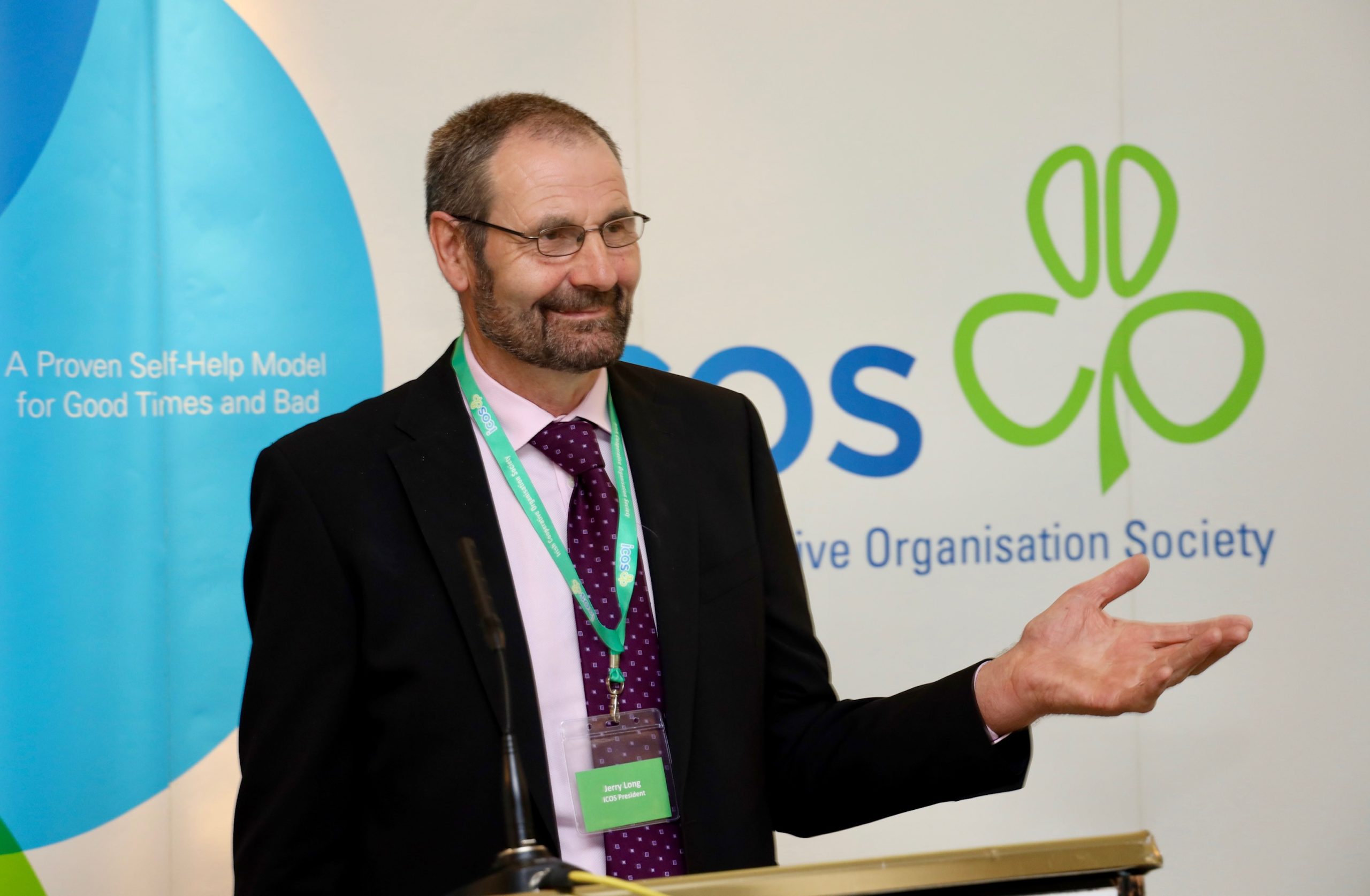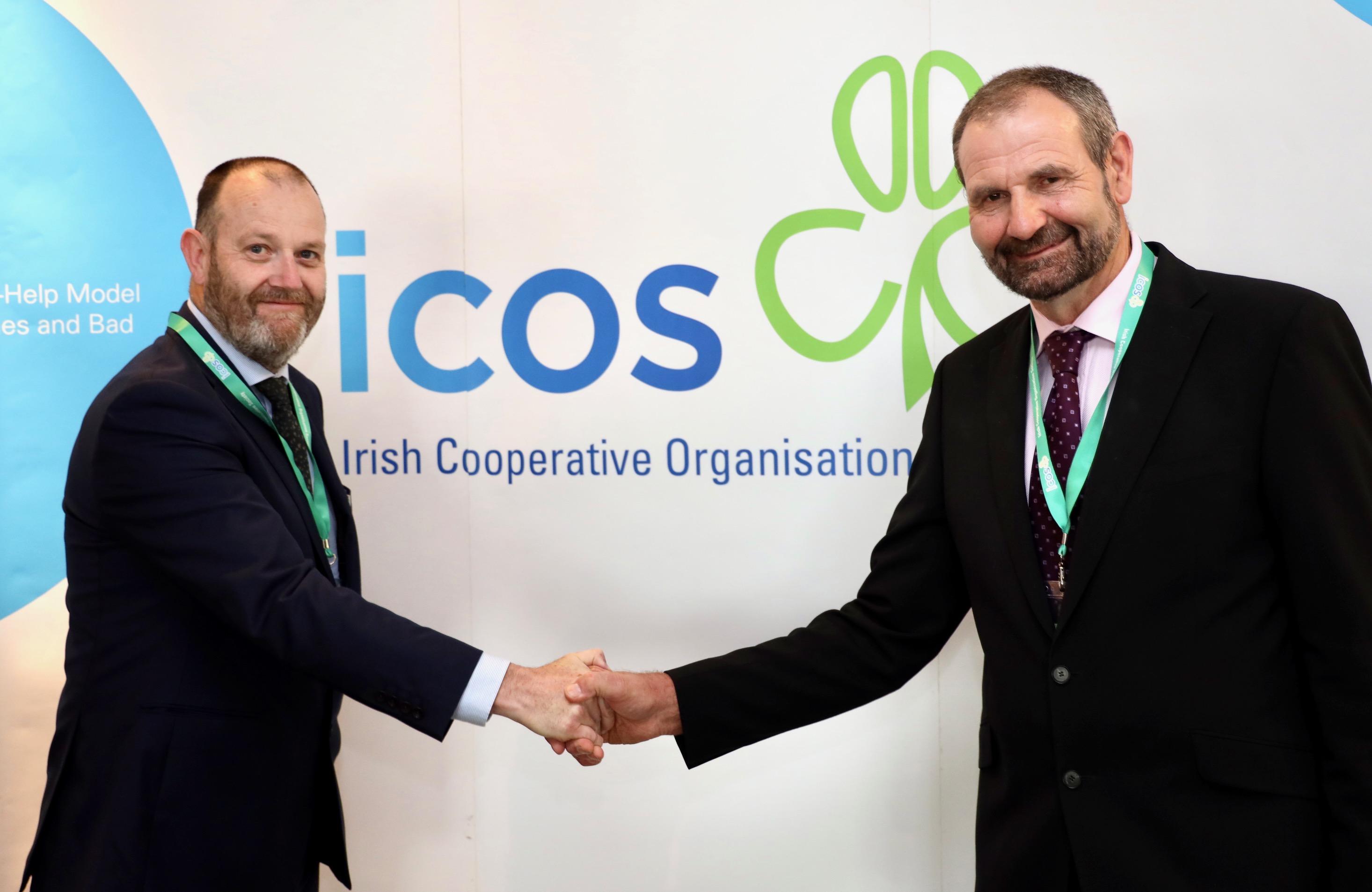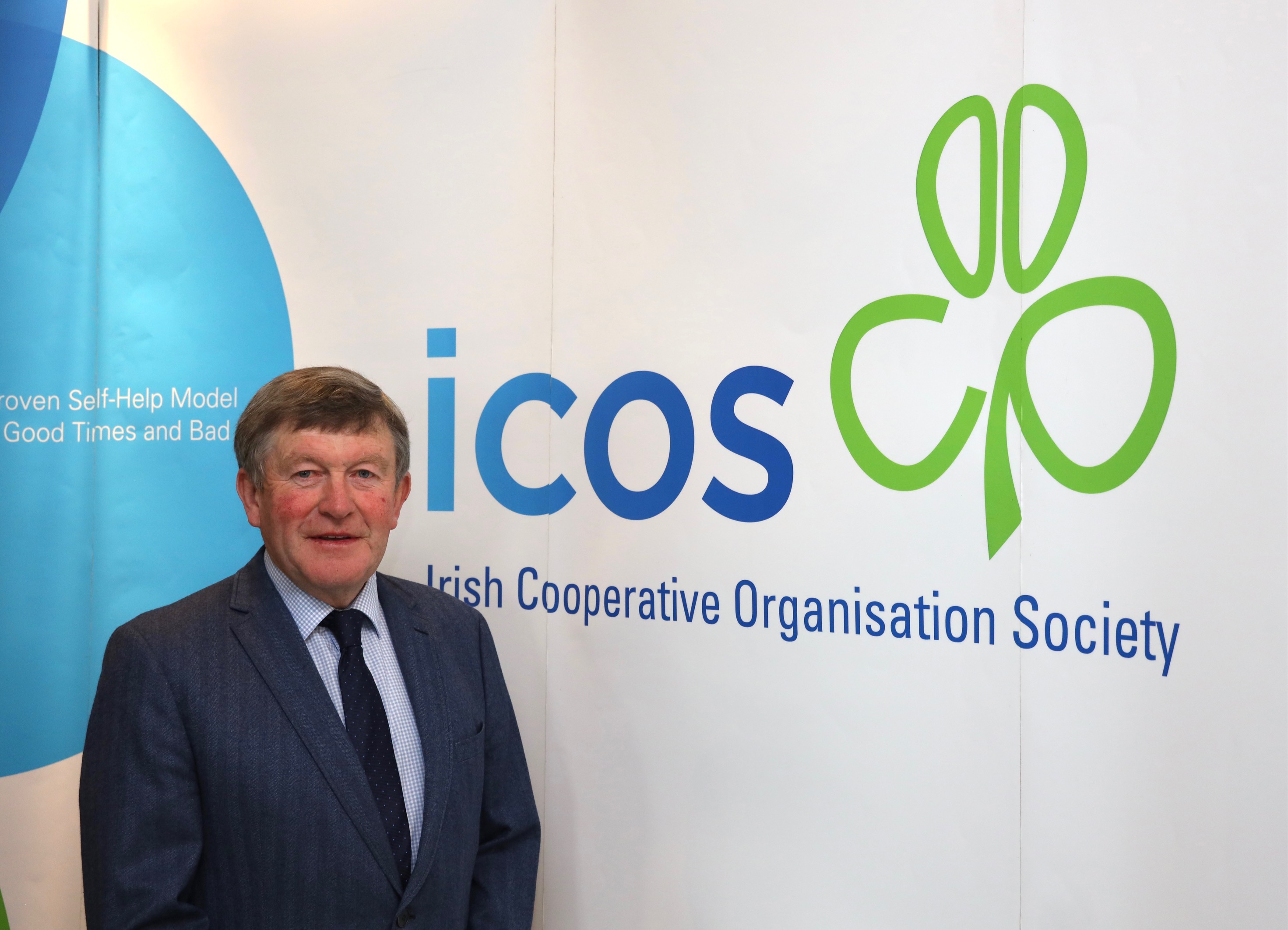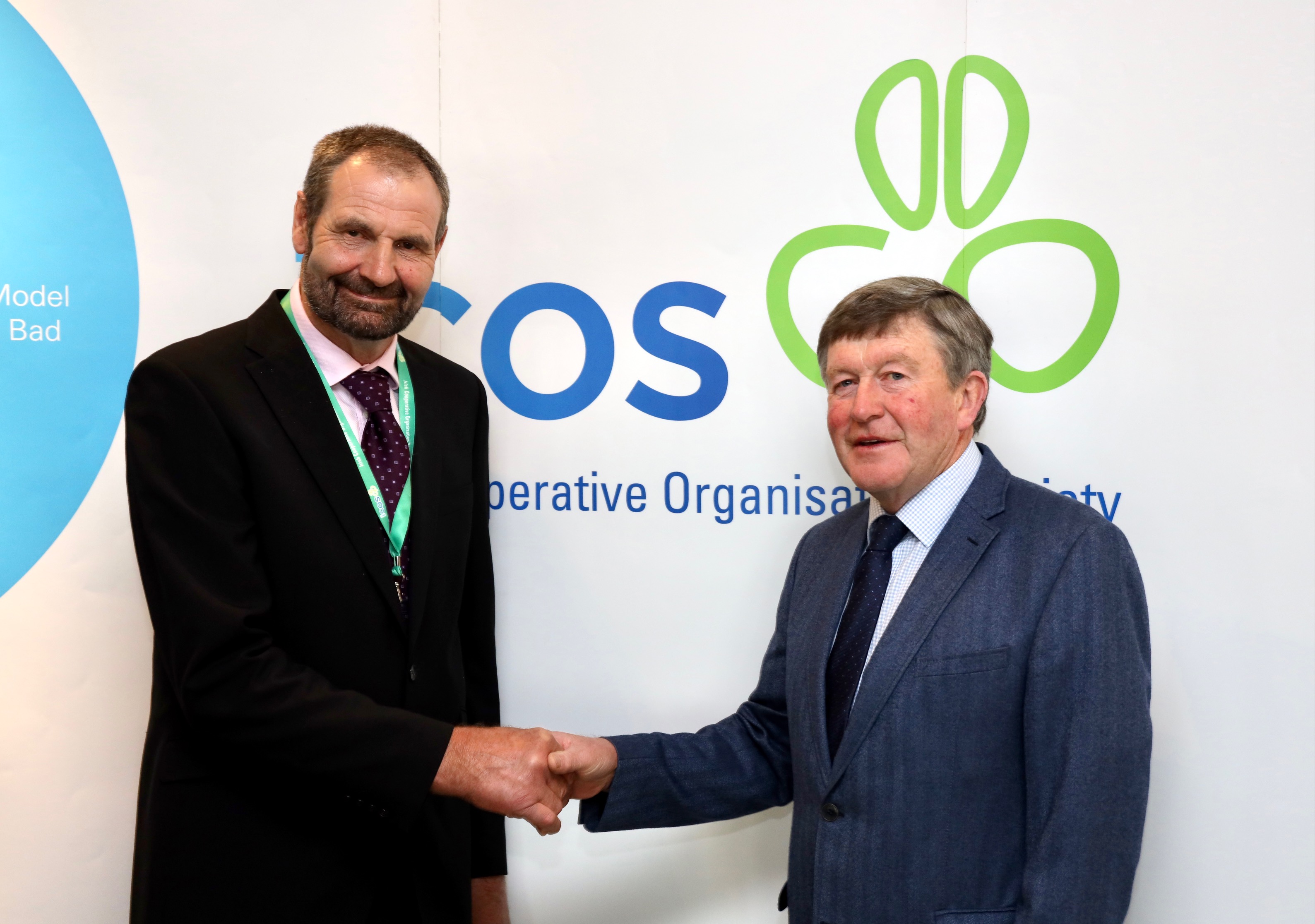‘Prepare for leadership’ – outgoing ICOS President encourages younger farmers to get involved in their co-ops
 President, Jerry Long, addressing the 127th ICOS AGM, in the Killeshin Hotel, 2nd June 2022
President, Jerry Long, addressing the 127th ICOS AGM, in the Killeshin Hotel, 2nd June 2022
127th AGM of ICOS takes place in Portlaoise
“The achievements of the Irish co-operative movement for over a century and more have been driven by generations of farmers who, in very many ways, have led from the front in the collective best interests, betterment and improvement of farming with all its potential.
“We now need to see a next generation of farmers coming forward to lead the continuous evolution, sustainability and success of our sector in the critically important decades ahead,” outgoing ICOS President Jerry Long, told the 127th AGM of the Irish Co-operative Organisation Society, this morning Thursday 2nd June, 2022.
Marking the conclusion of his term of office as President for the past 3 years and Dairy Committee member of ICOS for 11 years, Jerry Long said:
“Farming has benefited families, rural communities and our national economy through the ages while ensuring food security and sustenance at home and abroad. The current generation of co-operative leaders serve us well, and will continue to do so. We must also foster a growing level of participation in the democratic life of our co-operatives, from the grassroots through our regional committees and onwards to Board level, to ensure that the progress and direction of our industry will always meet the long-term aspirations of our co-operative members.
“That won’t happen unless younger men and women get involved in the life of their co-operatives. While there’s no guarantee of a Board seat, and that is very much a function of democracy, there is a guarantee of fulfilment in the knowledge and surety of helping to shape the future direction of co-operative enterprise and all of the value that it has created and must continue to create for farmers into the future.
“Leadership is hugely important in the co-operative movement. We have created hugely successful businesses, trading on global markets, matching and beating the best organisations in the world. Those businesses are owned and controlled by farmers, for farmers, with everything about them designed to support and promote their members.
“But that didn’t happen by accident. The successful co-ops we have today are as a result of strong leadership and decision-making by elected boards of farmers back through the decades, including the implementation of some popular and not so popular decisions, where the overall result can be seen in the hugely successful farmer focused businesses we have today.
“That strong leadership will be called on to an even greater extent over the coming years. While we’re in a strategically strong position at the moment, we face some substantial headwinds that aren’t of our making.
“Currently record milk prices , mart prices and barley quotes, for example, all look strongly in the farmer’s favour. But there is still volatility and uncertainty for many segments of agriculture, all of which is set against the backdrop of climate change, spiralling costs for fertiliser, feed and energy, as well as a massive shortage of skilled people to work in our industry.
“The result of two years of Covid supply chain disruption, along with the criminal war in Ukraine, is that our whole business infrastructure, and that of almost the entire world, has been thrown into disarray.
“It’s clear that ‘just-in-time’ manufacturing and supply chains just don’t work anymore.
“The customers for our wonderfully nutritious foods, particularly in developing countries, will have difficulty in affording the prices that they are being charged. This is, to a large extent, is a result of the cheap food policy of most western nations over the past number of decades. That misguided policy has served to undermine the stable, sustainable, safe and affordable food we can produce; and in seeking to continually drive down prices, it weakened our industry, and drove away a generation of young people to make a better life elsewhere.
“The current concerns for food security can be attributed to the continued undermining of our sector, and its portrayal as a destroyer of the environment. That portrayal has created a stereotype of Irish agriculture that must be challenged by all of the initiatives and measures we already have in place, and around which we will continue to innovate, to ensure environmental protection and sustainability within Irish agriculture and food production, now and for the future.
As one of the most naturally carbon efficient agricultural sectors in the world, we are committed to the further mitigation of climate change and carbon reduction on a fair and equitable basis relative to all other sectors. However, we have been an easy target for mis-informed commentary and for other industries. Even our national food strategy document, Food Vision 2030, doesn’t adequately address food security as an issue. We currently face a target to dramatically reduce our usage of chemical nitrogen, and in the coming weeks we expect a sectoral target for greenhouse gas emission reductions which will challenge us beyond our current capacity.
“Decisive leadership will be needed by co-operative boards, working with their management teams and others in the sector, to find a way to get through this evolution without destroying our industry. We will need to lean on all the resources at our disposal, developing our bio-economy, maximising our scarce resources and finding new energy sources, and given that this is a national policy agenda, it will require Exchequer support.
“Young people are our most valuable resource. We need their talent, energy and idealism, and so I challenge our younger generation of farmers to come forward and get involved in your co-operative. ICOS is available to work with co-operatives to provide training and support for newer participants as they make their contribution.
“At the end of my term at the helm of this great organisation, I’m very proud of the part it has played in showing leadership and support to our sector. We have built a powerful movement and we need to continually invest in it, with time, loyalty and commitment.
“I pay tribute to the boards, members and producers of each of our member co-operatives and to their management and employees.
“We have enormous challenges to overcome; challenges we couldn’t have dreamed of three years ago. We also have enormous opportunities, and we must grasp them.
“It is through the continued adherence to the solid principles of our founder, Horace Plunkett that we will achieve what we’re all after – Better Farming, Better Business, Better Living. These principles ring truer today more than ever before and if we continue to promote them as we have done so successfully in the past, there will be a bright future for generations to come.”


